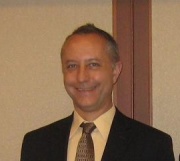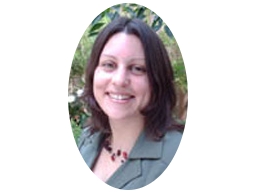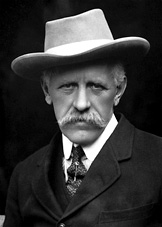Category:Glossary items
Organizations:
Asian Development Bank
Established in 1966, the ADB is a major source of development financing for the Asia and Pacific region. With more than $17.5 billion in approved financing, the ADB, in partnership with member governments, independent specialists and other financial institutions – is focused on delivering projects that create economic and development impact. http://www.adb.org/ Center for Global Development: Based in Washington D.C., CDG is an independent, nonpartisan, and nonprofit think tank working to reduce global poverty and inequality. CGD conducts research and analysis on a wide range of topics related to how rich country policies impact people in the developing world. http://www.cgdev.org/ Groupe d’information et de soutien des immigrés (GISTI): An independent non-profit organization providing information and support to immigrants. http://www.gisti.org/index.php
International Organization for Migration (IOM):
An intergovernmental organization established in 1951, IOM is committed to the principle that humane and orderly migration benefits migrants and society. The IOM is composed of 146 Member States and 98 observers, it has more than 450 field locations and more than $1.3 billion in expenditures in 2011. http://www.iom.int/jahia/jsp/index.jsp
United Nations Environmental Programme (UNEP):
The UNEP is the environmental arm of the United Nations, their mission is “to provide leadership and encourage partnership in caring for the environment by inspiring informing and enabling nations and peoples to improve their quality of life without compromising that of future generations.” http://www.unep.org
United Nations Human Rights Commission (UNHCR):
Also known as The UN Refugee Agency is a United Nations agency mandated to protect and support refugees at the request of a government or the UN itself and assists in their voluntary repatriation, local integration or resettlement to a third country. Its headquarters are in Geneva, Switzerland and is a member of the United Nations Development Group. The UNHCR has won two Nobel Peace Prizes, once in 1954 and again in 1981. The agency is mandated to lead and co-ordinate international action to protect refugees and resolve refugee problems worldwide. Its primary purpose is to safeguard the rights and well-being of refugees. It strives to ensure that everyone can exercise the right to seek asylum and find safe refuge in another state, with the option to return home voluntarily, integrate locally or to resettle in a third country. http://www.unhcr.org/cgi-bin/texis/vtx/home Conventions and Conferences
Limoges 2005 & Maldives 2006 Amendments:
Propositions for an amendment to the 1951 Geneva Convention Relating to the Status of Refugees that would extend the mandate of the UN refugee regime to include climate refugees.
National Adaptation Programs of Action (NAPA):
“National adaptation programmes of action (NAPAs) provide a process for Least Developed Countries to identify priority activities that respond to their urgent and immediate needs to adapt to climate change – those for which further delay would increase vulnerability and/or costs at a later stage”. http://www.unfccc.int/national_reports/napa/items/2719.php
Convention for Climate Change Displaced People (CCDP):
CCDP argues for a universal treaty to define what is an environmental migrant. http://www.ccdpconvention.com
Cochambaba 2010:
2010 World People’s Conference on Climate Change and the Rights of Mother Earth in Cochambaba, Bolivia.
Definitions
Climate Refugee:
someone who is forced to move out from where he/she lives because of extreme weather disasters or deteriorating climate conditions.
Ecological Refugee:
Someone who is you are forced to leave because of environmental factors.
Ecological Migration:
Someone who choses to leave because of environmental factors.
Environmentally Displaced:
Someone who is displaced due to environmental factors which negatively impact his or her livelihood. Such displacement can be cross-border in nature but is frequently internal.
Internally Displaced Person:
Someone who is forced to flee his or her home but who remains within his or her country’s borders. They are often referred to as refugees, although they do not fall within the current legal definition of a refugee. Stateless Persons: Statelessness is alegal concept describing the lack of any nationality. It is the absence of a recognized link between an individual and any state. A de jure stateless person is someone who is “not considered as a national by any state under the operation of its law.” A de facto stateless person is someone who is outside the country of his or her nationality and is unable or, for valid reasons, unwilling to avail him- or herself of the protection of that country.This can be a result of persecution, in which case there is an overlap with the definition of a refugee, but it can also be a consequence of lack of diplomatic relations between the state of nationality and the state of residence.
Experts and Researchers
Bart Édes:
Mr. Èdes is director, Poverty Reduction at the Gender and Social Development Division at Asian Development Bank, Philippines. He has held a variety of positions in the fields of international development, communications, and public policy.
Francois Gemenne:
A research fellow at the Institute for Sustainable Development and International Relations (IDDRI), Francois Gemenne also teaches the international politics of climate change and the governance of migration at Sciences Po Paris, the University of Paris 13 and the Free University of Brussels.His research deals with populations displaced by environmental changes and the policies of adaptation to climate change. He has conducted field studies in New Orleans (United States) after hurricane Katrina, and in the archipelago of Tuvalu, threatened by sea-level rise, as well as in China, Central Asia and Mauritius.
Olivia Dun:
Ms. Dun is a PhD candidate at the School of Geosciences, University of Sydney. Her PhD research is examining what role environmental change plays in migration decisions of people living in areas affected by environmental changes. In particular, her PhD focuses on the links between flooding, saline intrusion and migration in the Mekong Delta, Vietnam.
Dina Ionesco:
An internationally recognized immigration expert, Ms. Ionesco is policy researcher at the International Organization for Immigration (IOM).
Fridtjof Nansen:
A Norwegian explorer, scientist, diplomat, humanitarian and Nobel Peace Prize laureate. In his youth he was a champion skier and ice skater and later on devoted himself primarily to the League of Nations, following his appointment in 1921 as the League’s High Commissioner for Refugees. In 1922 he was awarded the Nobel Peace Prize for his work on behalf of the displaced victims of the First World War and related conflicts. Among the initiatives he introduced was the “Nansen passport” for stateless persons, a certificate recognised by more than 50 countries. He worked on behalf of refugees until his sudden death in 1930, after which the League established the Nansen International Office for Refugees to ensure that his work continued.
Pages in category "Glossary items"
This category contains only the following page.



